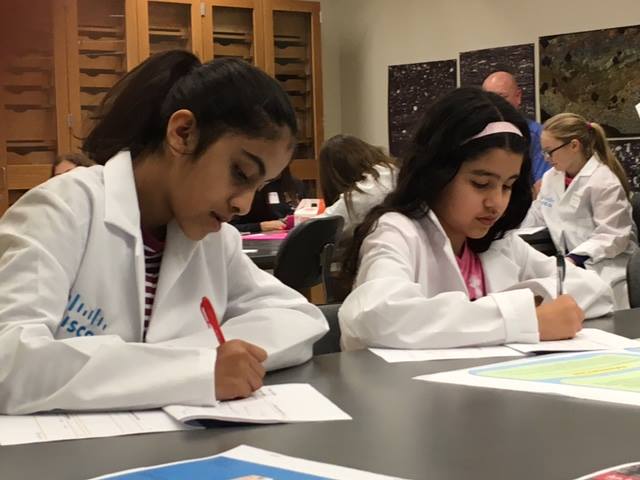Online Learning
The Center for the Advancement of STEM Education continues to support teachers, students and their parents by providing STEM resources and activities. The following online modules are aligned with Massachusetts Science and Engineering/Technology standards and teach skills identified as essential science and engineering practices. Please note that some modules are formatted for Open Lab Week, a community program held in October, 2020. Please contact us at case@bridgew.edu if there are specific STEM lessons or standards that you need help addressing.
Modules are presented using Sway, which is best experienced using Microsoft Edge, Internet Explorer 11, Firefox 17 or later, Chrome 23 or later, and Safari 6 or later. Viewing a Sway on the Web works at any screen resolution. If you run into any issues, please try a different browser, or send us an email at casebsu@bridgew.edu.
Accordion Content
Anatomy of a Volcano: Kilauea
Kilauea volcano is located in the state of Hawaii in the middle of the Pacific Ocean.
Anatomy of a Volcano: Mount St. Helens
Mount St. Helens is an active stratovolcano most known for its major eruption on May 18, 1980.
Earthshaking Earthquakes!
Learn all about earthquakes, seismic waves, why earthquakes happen, and where they happen! They will then make their own seismograph and see energy waves pass through it when they hit a table/surface!
Exploring Craters
When looking at the Moon, many circular shapes are easily visible across the surface. These circles are called craters.
Fun With Fossils
A fossil is any preserved remains, impression, or trace of any once-living thing from a past geological age.
Where Does the Sun Set? Exploring the Seasons
How many times in your life do you think you have watched the Sun set? Where does it set? In the west, you say. But, does the Sun set in the same place every night? Does the location of the sunset change with changing seasons?
The Amazing Properties of Water
The water molecule is unique in structure which causes it to behave in very interesting ways.
The Density of Water
Water is an amazing chemical substance naturally found in all 3 physical states; solid, liquid, and gas. In this investigation we will learn about how the density of the water changes with the states of matter.
Diversity in Action
Diversity is a critical component in the survival of a species. Variations in genetic makeup allow populations to survive and thrive even with environmental stressors.
Exploring Owl Pellets
Before we explore owl pellets, we should know a few things about owls.
Nature's Recyclers
Food webs are just one of nature’s many cycles.
Seek by iNaturalist
Seek by iNaturalist is designed specifically with children in mind, especially for students under the age of 13.
What's for Dinner? An Investigation of Food Chains
Did you know all the food you eat can be traced through the food chain back to the first producer (plant)? In this investigation you will learn how food chains and food cycles work.
The Amazing Properties of Water
The water molecule is unique in structure which causes it to behave in very interesting ways.
The Density of Water
Water is an amazing chemical substance naturally found in all 3 physical states; solid, liquid, and gas. In this investigation we will learn about how the density of the water changes with the states of matter.
